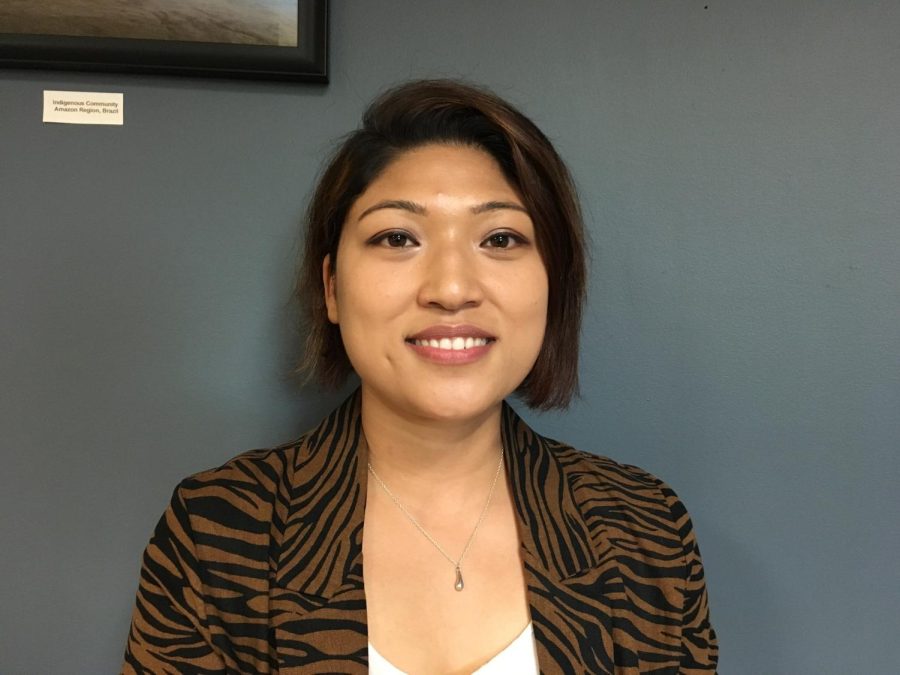Public health professor investigates lead blood levels among resettled refugee children
August 25, 2019
Substance abuse, obesity and nutrition have recently been some of the most important public health issues concerning scientific scholars and pediatricians. But in recent years, lead poisoning has come into the spotlight, particularly after the Flint, Michigan water crisis gained attention.
Associate Professor of Epidemiology and Global Health Madhav P. Bhatta and doctoral student Sunita Shakya from the College of Public Health investigate the issue of blood lead level among resettled refugee children in the United States in several studies.
Their latest study “Elevated Blood Lead Levels Among Resettled Refugee Children in Ohio, 2009-2016,” revealed resettled refugees have higher prevalence of elevated blood lead level compared to children born in the U.S.
Bhatta has worked with the refugee population for the last 10 years.
“I’m originally from Nepal and I worked with the community on health issues,” he said.
He said one of the reasons for the exposure is the refugee country of origin. Before refugees are resettled, they are often exposed to lead in their country through different sources such as industrial wastes, lead-based paints and lead-acid batteries.
Additionally, after their resettlement, they are often placed in low-income areas, and one of the potential reasons for the lead exposure is lead paint in old buildings.
“These incidents explain the high lead blood levels,” Bhatta said.
Shakya, who also grew up with a passion for working with the refugee population like her mentor Bhatta, said lead wasn’t the topic she was going after when she started her practicum during her master’s program in 2012, but the data she saw at Akron Children’s Hospital was alarming.
“Dr. P. Cooper White, my supervisor from Akron Children’s Hospital, told me about what he is seeing in this community in regular children’s checkups, kids are having significantly elevated blood lead level,” Shakya said.
Lead poisoning consequences are difficult to discern, ranging from impacting behavioral health to IQ deficiency. “It can affect any part of the body or body system,” Shakya said. “Kids can become aggressive and it will be hard for them to catch up in schools. They often score lower than their peers.”
Although lead paint can act as one of the major exposures, there are others the study points at.
“Another reason can be some cultural customs like eyeliners,” Shakya said.
The study results showed that 56.2 percent of children from a South Asia region including Afghanistan who were screened in the study had a lead blood level higher than five. According to the Centers for Disease Control and Prevention, lead blood levels of five mcg/dL are considered an alarming number in children.
“As a custom, some parents put eyeliner on their kids either to make them pretty or prevent them from the evil eye. CDC found that eyeliner product that comes from Afghanistan had very high lead content in them,” Shakya said.
As the Flint, Michigan incident broke the news on lead poisoning, it drew more attention toward the danger of lead exposure; however, she said the awareness needs to be more nationwide.
“It’s like a silent killer now,” she said. “It has no symptoms, no medicine or treatment. The only thing we can do is prevent and make people aware.”
Having the study published sheds light on lead blood poisoning, but it is not the only step that can be taken. The next step is to educate people.
“If you are a resettled refugee who lives in a house that potentially has lead, are you in a position to do something about it? Are you able to move? These are some of the things that need to be looked into,” Bhatta said.
Many agencies such as the Ohio Health Department and the United States Environmental Protection Agency provide information about lead laws, regulations and how to protect families. However, Shakya said the language barrier can prevent resettled refugees from getting information.
“Lead safe home programs are good but not enough. We need tailored guidelines for parents and to confront doctors to talk about it with their patients,” she said.
Shakya’s Ph.D. dissertation will continue to investigate the topic to provide evidence to bring attention to local, state and federal legislation. As individuals, she said that people should not accept living in houses that are in poor condition.
“I went to two hundred houses for interviews for another research. The houses are crumbling. I don’t even know how it is even legal to lease these apartments. It is like the houses are going to fall,” Shakya said.
“If you are buying a house, make sure you know enough about this house,” she said. “Raise your voice if it is not OK to say that it is not OK.”
Shams Mustafa is a general assignment reporter. Contact her at [email protected].
Editor’s Note: The original story has been changed to reflect the preferred name of a source.

















